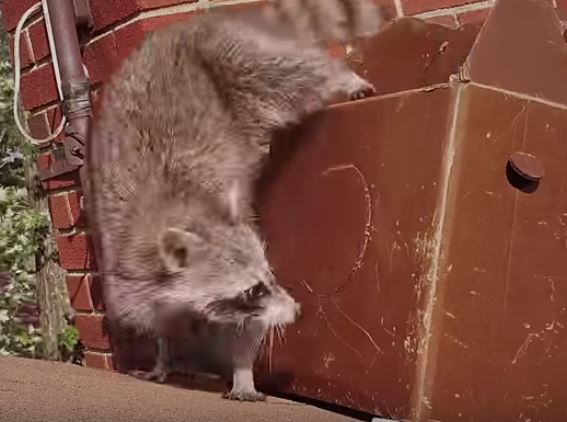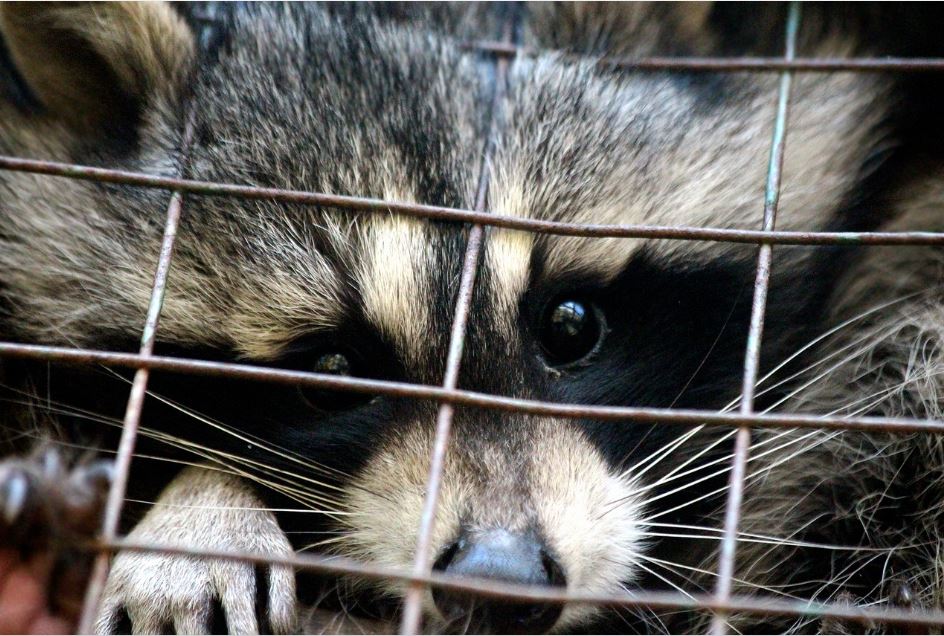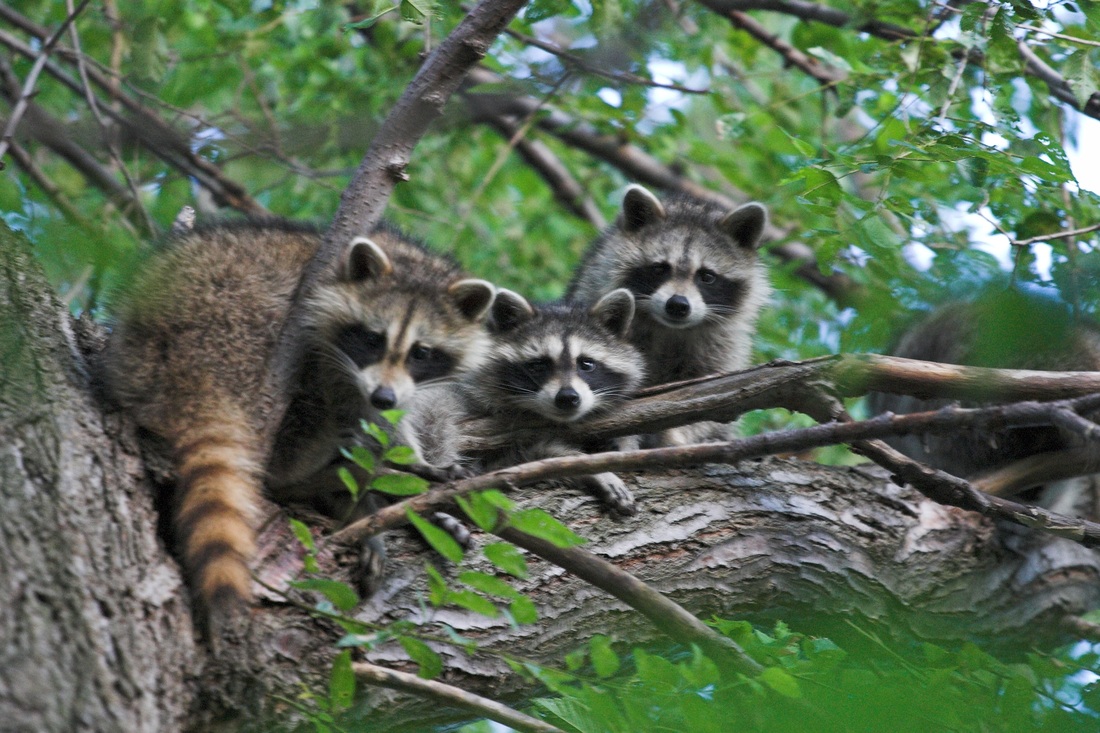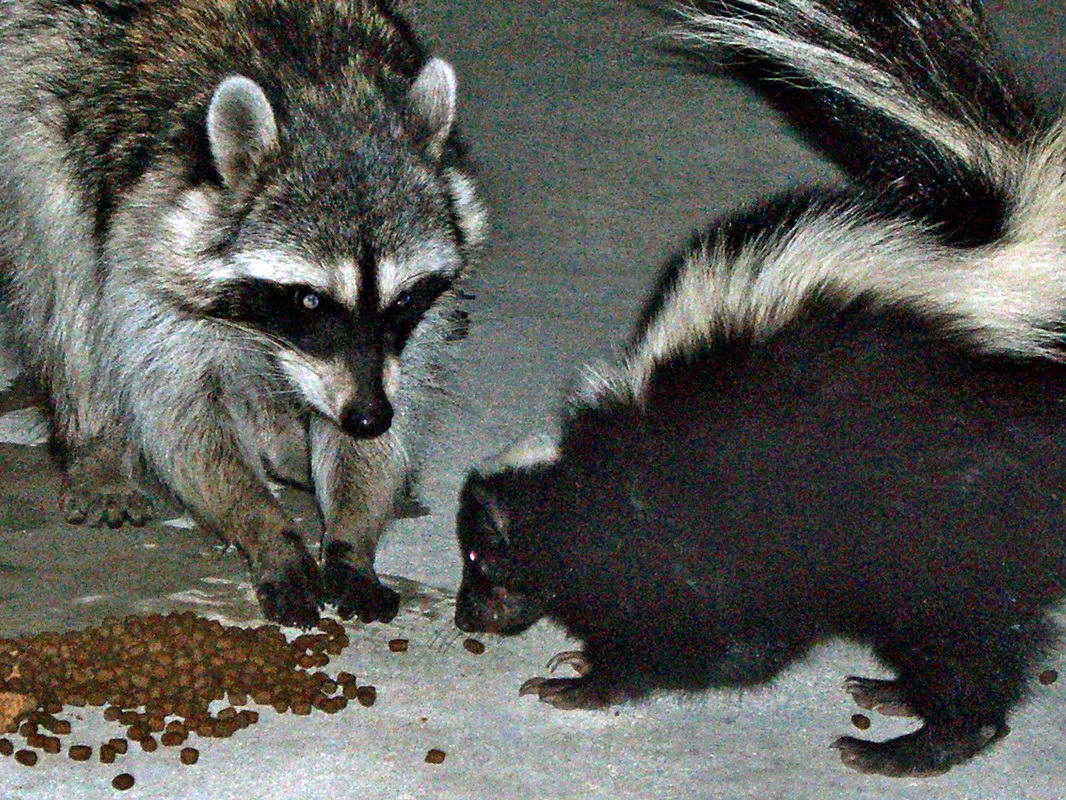Welcome to RVA Pest Control, Servicing Richmond and Surrounding Communities
|
Characteristics of raccoons: They grow to 61 to 91cm long, and have a distinctive black mask face with a ringed tale. Habits and Lifestyle: Raccoons are nocturnal mammals, and are known for their mischievous nature. Raccoons typically search and dig around in trash cans, creating a mess and scattered trash. Most of the time, these creature prefer to live in hollow trees and logs near lakes and streams. They come out into populated areas when they're searching for food and refuge. A few of their favorite man-made structures to live in are beneath porches, outbuilding, attics and chimneys. Raccoons eat insects, frogs, fish and crayfish in spring and early summer. In the late summer and fall, they start searching for nuts, grains, berries, fruits, and sweet corn from gardens. Infestation Signs: Asides from seeing a raccoon, other hints of an infestation can include overturned trash cans, partially eaten garden items (such as corn or melons). Another sign can be structural damage they may cause as they try to enter buildings, such as attics. Other evidence of raccoons can be:
Since raccoons enjoy raiding trash cans, it is a good idea to use one that is made out of hard plastics and metal. Cans should have tight-fitting lids and straps to help hold them shut, so the raccoon can't open them. Access to chimneys can be eliminated by covering up the area with screen wire over any openings. Trapping Control MethodsAnother control method is to capture the raccoon. However, check the local regulations for trapping and relocation requirements before doing so. Or even better, contact your pest control professional who has experienced training in resolving pest issues in correct ways. Do-it-yourself trapping can be dangerous from raccoon bites, falls from ladders and contact with raccoons and their wastes that can cause disease problems. Raccoons are considered a primary carrier of rabies, which signs in raccoons may include a staggering gait, erratic wandering, discharge from eyes or mouth, and oblivious to noise and movement.
|
Raccoons in Tree
Raccoon and Skunk eating cat food
Other helpful ways to Discourage Raccoons are:Exclusion and habitat modification:
Reduce Available Food Sources:
Limit Available Water:
|





